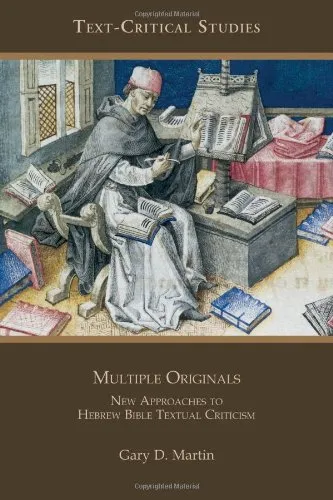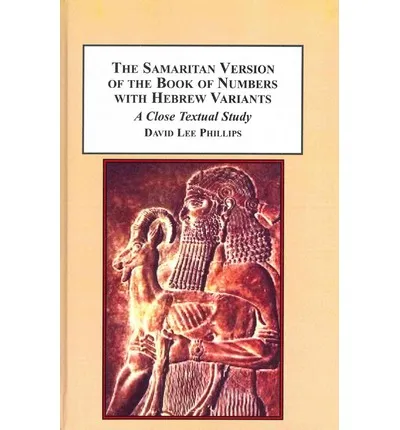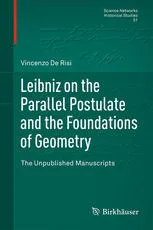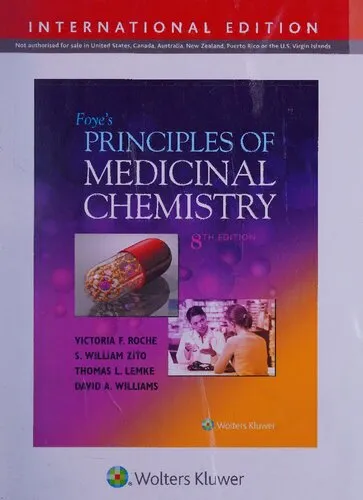Multiple Originals: New Approaches to Hebrew Bible Textual Criticism
4.0
Reviews from our users

You Can Ask your questions from this book's AI after Login
Each download or ask from book AI costs 2 points. To earn more free points, please visit the Points Guide Page and complete some valuable actions.Related Refrences:
Introduction to "Multiple Originals: New Approaches to Hebrew Bible Textual Criticism"
The Hebrew Bible is a cornerstone of religious tradition, literary heritage, and historical inquiry. Its textual history, however, is as complex and intriguing as its narratives. "Multiple Originals: New Approaches to Hebrew Bible Textual Criticism" by Gary D. Martin offers a fresh perspective on how scholars engage with the textual variants of the Hebrew Bible, challenging traditional paradigms and providing innovative approaches for modern readers and researchers alike.
Textual criticism is the science of analyzing and reconstructing ancient manuscripts to better understand their history, transmission, and original forms. Traditionally, scholars presumed there was an "original text" of the Bible that could be reconstructed through careful comparison of manuscripts. However, this book questions that assumption and introduces the concept of "multiple originals," where variations in the text are seen not as errors or corruptions, but as integral to the textual and interpretive history of the Hebrew Bible. By expanding the scope of textual criticism, this work encourages a broader understanding of the Bible's development and offers tools for navigating its multifaceted textual landscape.
Detailed Summary of the Book
"Multiple Originals" is divided into several key sections, each addressing unique aspects of Hebrew Bible textual criticism:
- Rethinking Textual Authenticity: This section explores the limitations of the "single original text" paradigm and why it may not accurately reflect the history of biblical manuscripts. Instead, the author proposes that different manuscripts, traditions, and textual witnesses may all hold equal authority.
- Manuscript Plurality and its Implications: Here, the discussion turns to the variation among key manuscript traditions, including the Masoretic Text, the Septuagint, and the Dead Sea Scrolls, highlighting how these diverse witnesses offer complementary perspectives on biblical texts rather than competing versions.
- New Methodologies for Textual Criticism: The author introduces innovative methods for examining textual variants, drawing from disciplines like literary theory, digital humanities, and linguistic analysis. These methodologies aim to reframe textual differences as opportunities for deeper understanding.
- The Theological and Practical Implications: Finally, the book addresses how this approach changes the way communities read, interpret, and engage with the Hebrew Bible, emphasizing the importance of inclusivity and flexibility in both scholarship and faith traditions.
Throughout the book, Martin weaves in case studies, examples, and practical tools for scholars, students, and anyone interested in deepening their understanding of the Hebrew Bible’s textual history.
Key Takeaways
Readers of "Multiple Originals" will come away with several critical insights:
- The concept of a single "original text" is often an oversimplification of the Hebrew Bible’s complex textual history.
- Textual variations are not errors to be discarded but valuable windows into the evolving tradition of the Bible.
- Approaching textual criticism with openness to "multiple originals" enhances our appreciation of the Hebrew Bible’s richness, complexity, and dynamism.
- Understanding the Bible’s textual history requires interdisciplinary methods that draw on modern technologies and broader academic perspectives.
Famous Quotes from the Book
"Textual criticism is not merely about reconstructing what was; it is about recognizing the living history of what is."
"Every manuscript is a witness, not to one authoritative text, but to a multiplicity of voices that together create a vibrant textual tradition."
"The beauty of the Hebrew Bible lies not in uniformity, but in the interplay of its variations."
Why This Book Matters
"Multiple Originals" represents a significant shift in the field of Hebrew Bible textual criticism. Gary D. Martin challenges established norms and encourages both scholars and everyday readers to rethink how they approach biblical texts. This book matters because it broadens our understanding of the Bible’s creation and preservation, emphasizing that variation and diversity are integral to its legacy.
For students and teachers of biblical studies, theologians, historians, and anyone curious about the Hebrew Bible’s intricate history, this book provides a roadmap for navigating the complexities of its textual tradition. By advocating for plurality in place of singularity, "Multiple Originals" enriches our understanding of the Bible as a dynamic and multifaceted work that speaks to the breadth of human experience across cultures and centuries.
Free Direct Download
You Can Download this book after Login
Accessing books through legal platforms and public libraries not only supports the rights of authors and publishers but also contributes to the sustainability of reading culture. Before downloading, please take a moment to consider these options.
Find this book on other platforms:
WorldCat helps you find books in libraries worldwide.
See ratings, reviews, and discussions on Goodreads.
Find and buy rare or used books on AbeBooks.
1315
بازدید4.0
امتیاز0
نظر98%
رضایتReviews:
4.0
Based on 0 users review
Questions & Answers
Ask questions about this book or help others by answering
No questions yet. Be the first to ask!






![The Ultimate iOS Interview Playbook: Conquer Swift, frameworks, design patterns, and app architecture [Team-IRA]](https://s3.refhub.ir/images/thumb/The_Ultimate_iOS_Interview_Playbook__Conquer__29925.webp)






